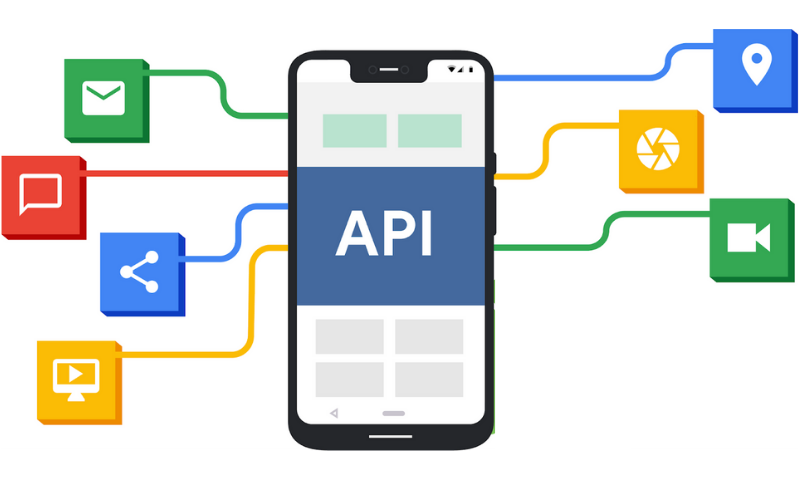Mobile API Integration: Connecting Your App to the World

App Updates: Enhancing Your App for Continued Success
May 26, 2024
Biometric Authentication: Enhancing Mobile Security and User Experience
May 26, 2024Mobile API Integration: Connecting Your App to the World
Mobile API integration is a critical component of building modern mobile applications that connect to external services, databases, and platforms. This article explores the importance of mobile API integration, common use cases, and best practices for integrating APIs into your mobile app effectively.
Thank you for reading this post, don't forget to subscribe!Understanding Mobile API Integration
Mobile API integration involves connecting your mobile application to external APIs (Application Programming Interfaces) to access data, functionality, and services provided by third-party providers. APIs serve as intermediaries that allow your app to communicate with external systems, such as social media platforms, payment gateways, cloud services, and more. By integrating APIs into your mobile app, you can leverage existing infrastructure and functionality to enhance your app’s capabilities and provide value-added services to users.
Why Mobile API Integration is Essential
Access to External Services
Mobile API integration enables your app to access a wide range of external services and resources, such as social media platforms, location-based services, weather data, and more. By tapping into these APIs, you can enrich your app with valuable features and content that enhance the user experience.
Data Synchronization
API integration allows your app to synchronize data with external databases, servers, and cloud storage services. This enables real-time data updates, seamless data sharing across devices, and access to up-to-date information from anywhere.
Functionality Extension
Integrating APIs into your app allows you to extend its functionality beyond what is possible with built-in features. By leveraging APIs for tasks such as authentication, payment processing, push notifications, and analytics, you can streamline development and provide users with a more comprehensive and feature-rich experience.
Scalability and Flexibility
API integration provides scalability and flexibility by allowing your app to adapt and evolve over time. By decoupling your app’s core functionality from external services through APIs, you can easily update, replace, or extend features without requiring significant changes to the app itself.
Common Use Cases for Mobile API Integration
Social Media Integration
Integrate social media APIs, such as Facebook, Twitter, and Instagram, to enable features such as social login, sharing, posting, and user authentication. This allows users to connect their social media accounts to your app and share content seamlessly.
Payment Gateway Integration
Integrate payment gateway APIs, such as PayPal, Stripe, or Braintree, to enable secure payment processing within your app. This allows users to make purchases, transactions, and donations conveniently using their preferred payment methods.
Maps and Location Services
Integrate mapping and location-based APIs, such as Google Maps or Mapbox, to provide users with location-aware features, such as geolocation, directions, and nearby points of interest. This enables apps to offer personalized experiences based on the user’s location.
Push Notifications
Integrate push notification APIs, such as Firebase Cloud Messaging (FCM) or Apple Push Notification Service (APNs), to send real-time notifications to users’ devices. This allows you to engage with users, provide updates, and re-engage inactive users effectively.
Analytics and Reporting
Integrate analytics APIs, such as Google Analytics or Mixpanel, to track user behavior, app usage, and performance metrics. This enables you to gain valuable insights into how users interact with your app and make data-driven decisions to optimize the user experience.
Best Practices for Mobile API Integration
Choose Reliable APIs
Select reputable and reliable APIs from trusted providers with a proven track record of uptime, performance, and security. Ensure that the APIs meet your app’s requirements and adhere to industry standards and best practices.
Authenticate Securely
Implement secure authentication mechanisms, such as OAuth 2.0 or API keys, to authenticate and authorize access to APIs securely. Protect sensitive data and credentials by using encryption and HTTPS protocols for secure communication.
Handle Errors Gracefully
Implement error handling and retry mechanisms to handle API errors, timeouts, and network issues gracefully. Provide informative error messages and notifications to users to help them understand and resolve issues effectively.
Optimize Performance
Optimize API calls and data transfer to minimize latency, bandwidth usage, and battery consumption. Use caching, compression, and asynchronous requests to improve performance and responsiveness.
Monitor and Maintain
Monitor API usage, performance metrics, and error logs to identify issues and proactively address them. Stay informed about API updates, deprecations, and changes to ensure ongoing compatibility and reliability.
Comply with Terms of Service
Adhere to the terms of service and usage policies of the APIs you integrate into your app. Respect API rate limits, usage quotas, and licensing requirements to avoid service disruptions and legal issues.
Conclusion
Mobile API integration is essential for building modern mobile applications that connect to external services, databases, and platforms. By integrating APIs into your app effectively, you can access valuable data, functionality, and services that enhance the user experience and provide added value to users. By following best practices for mobile API integration and choosing reliable APIs from trusted providers, you can ensure that your app remains scalable, flexible, and secure. Embrace the power of mobile API integration to unlock new possibilities and deliver innovative experiences that delight users and drive success in the competitive mobile app market.
For more information: www.ecbinternational.com


